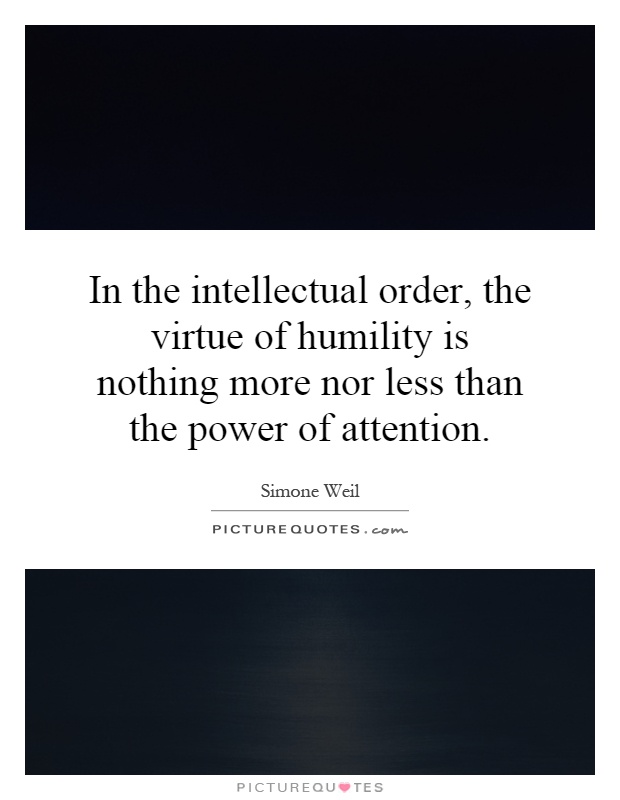In the intellectual order, the virtue of humility is nothing more nor less than the power of attention

In the intellectual order, the virtue of humility is nothing more nor less than the power of attention
Simone Weil, a French philosopher, mystic, and political activist, is known for her profound insights on the nature of human existence and the pursuit of truth. One of the key themes in her work is the importance of humility as a virtue in the intellectual order. Weil believed that humility was not simply a moral quality, but rather a powerful tool that enabled individuals to truly engage with the world around them.Weil argued that humility was essential for intellectual growth because it allowed individuals to approach knowledge with an open mind and a willingness to learn. In her essay "Reflections on the Right Use of School Studies with a View to the Love of God," Weil wrote, "Humility is attentive patience." She believed that humility was the key to developing the power of attention, which was necessary for true understanding and insight.
For Weil, attention was not simply a matter of focusing on a particular task or object, but rather a way of being fully present in the world. She believed that true attention required a willingness to set aside one's own ego and desires in order to truly engage with the world around them. In this sense, humility was the foundation of attention, as it allowed individuals to approach the world with an open mind and a willingness to learn.
Weil's emphasis on humility as a virtue in the intellectual order was rooted in her belief that true knowledge could only be attained through a process of self-emptying and openness to the world. She believed that humility was essential for intellectual growth because it allowed individuals to approach knowledge with a sense of wonder and curiosity, rather than arrogance or pride.












 Friendship Quotes
Friendship Quotes Love Quotes
Love Quotes Life Quotes
Life Quotes Funny Quotes
Funny Quotes Motivational Quotes
Motivational Quotes Inspirational Quotes
Inspirational Quotes